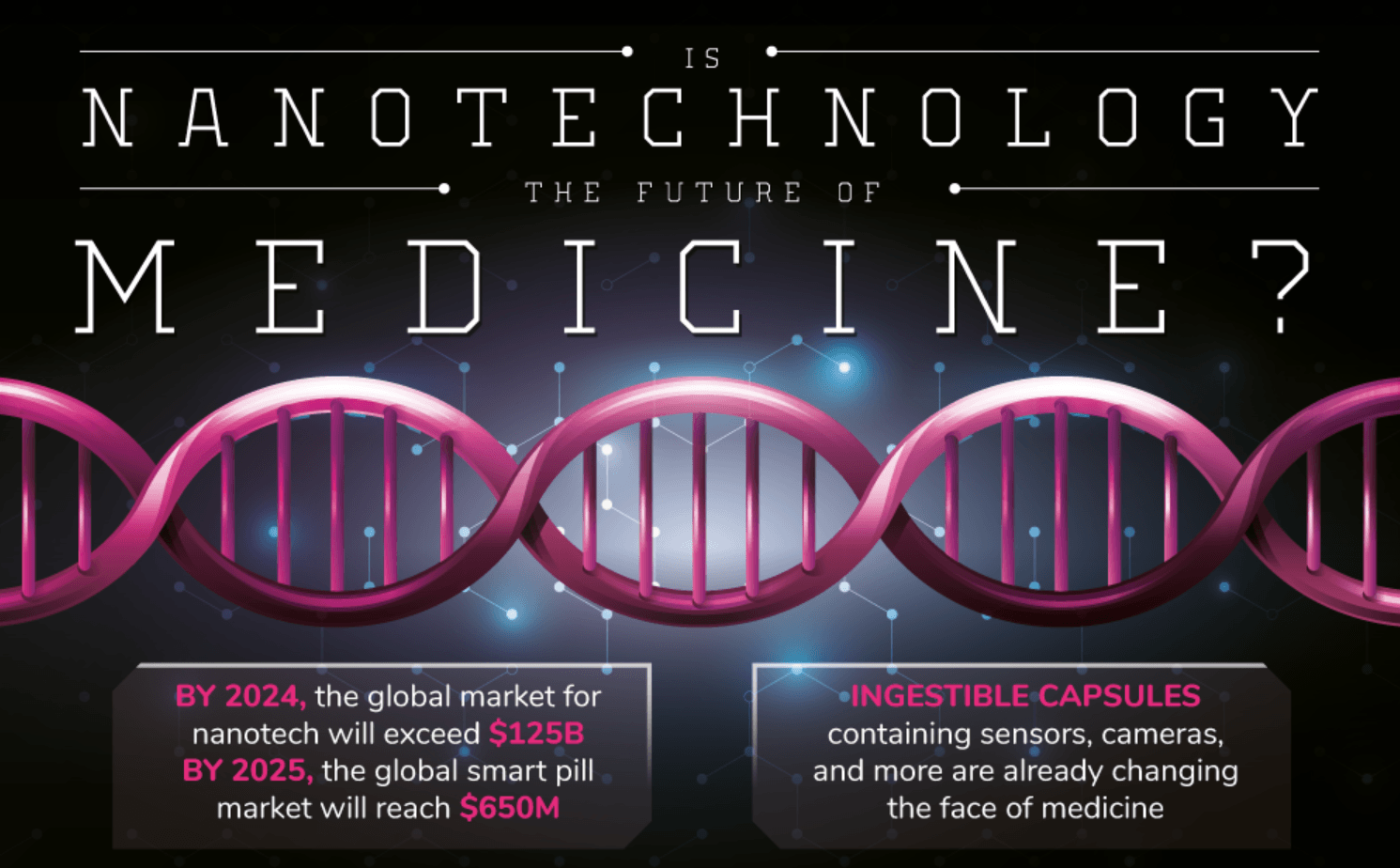Invasive medical procedures may soon be a thing of the past. Nanotechnology has been helping doctors see inside patients’ GI tracts for nearly two decades already, and in the first seven years pill cameras were available they were used in over 2 million procedures. But pill cameras aren’t the only nanotech revolutionizing medical treatments across the world. The future of nanotech in medicine is going to impact a lot more than you think.
Nanobots are already making difficult procedures safer and more effective. There is a nanobot that can aid in eye surgery, being directed by a magnetic field after having been injected into the affected eye with a needle. Nanobots can be used to clear blocked arteries, corkscrewing their way through plaque buildup on artery walls with minimal invasion. Nanobots that look like plastic cubes can unfold within a person’s body, grab a biopsy sample, and then carry it back out for testing.
Q3 2019 hedge fund letters, conferences and more
Nanotechnology is also improving wound care and vaccination rates. Microneedle vaccine patches can be stored and transported more easily, and you don’t need specialized medical training to be able to use them, giving people in underserved areas of the world the ability to be vaccinated even when there are no doctors or equipment required to administer traditional vaccines.
Nanotech in medicine being used for various treatments
Nanotech is also being used to create new treatments for certain conditions that have traditionally been more invasive or difficult to treat. Micromotors treat ulcers by targeting the affected area and then applying a pH neutralizer and antibiotic and then dissolving. DNA origami can target cancer cells and apply a blood clotting agent to the area, effectively cutting off the blood supply to the cancer and eventually killing it.
Smart pills are probably the most common nanotech currently used in medicine. There are pills that can relieve constipation without medications or side effects, pills that can detect your gut’s microbiome to help doctors determine whether there is anything off there, and pills that can track when you’ve had your medicine and how much.
Nanotech in medicine is not without its concerns, however. Much of this technology transmits the most personal of information about you - what’s going on inside your body - and is therefore vulnerable to hackers and anyone else who might seek to discover this information. What’s more, some of this technology can make treating people who have trust issues or mental health problems feel they are being tracked or watched against their will.
Learn more about the future of nanotechnology in medicine below!






